Physical spaces facilitate collaboration and interaction among students, encourage active learning, and deeper understanding. Group projects, discussions, and peer-to-peer learning thrive in environments that offer flexible seating arrangements and easily accessible technology. Collaborative spaces also nurture essential interpersonal skills, such as communication, teamwork, and empathy. These skills are not only vital for academic success but translate into the real world, preparing students for future career challenges that require effective collaboration. The design of physical spaces inspires creativity and innovation by providing students with the freedom to explore, experiment, and create.
This fall, the Truman School of Government and Public Affairs opened our new student lounge for our students to collaborate, meet, study, and learn. The lounge includes a casual seating area, study areas, areas for group work, and can be converted into a large event space. Our student groups such as AMPASS, Model UN, Mock Trail, and the Political Science Club use the new lounge for meetings and gatherings. We are excited to provide this space to our students to encourage peer-to-peer learning, community building, innovation, and academic success.
Thank you to all the alumni who contributed to making this a great space and place for students!
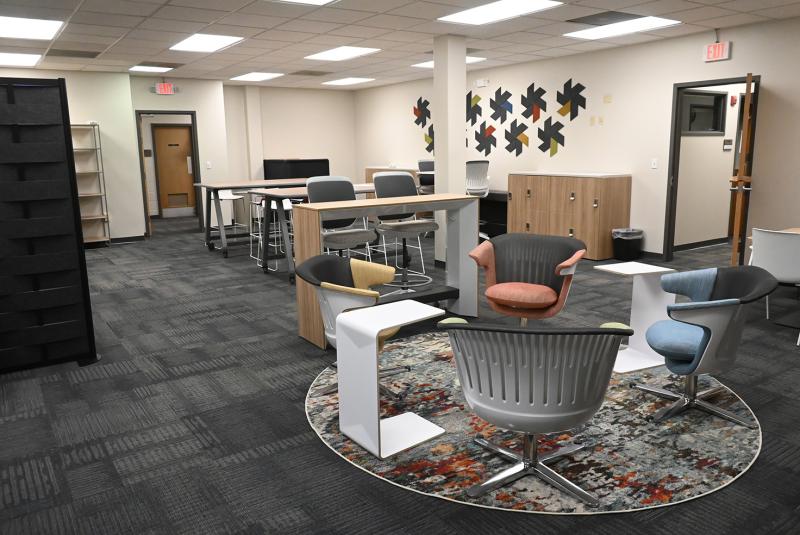 |
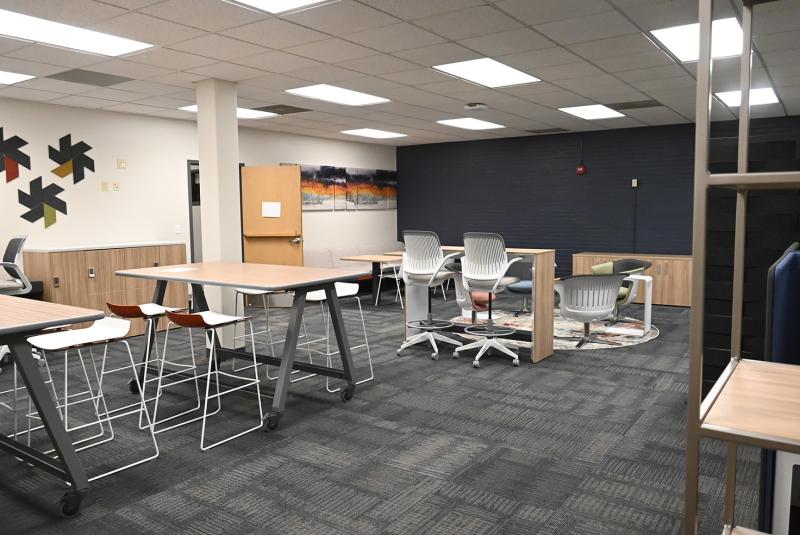 |
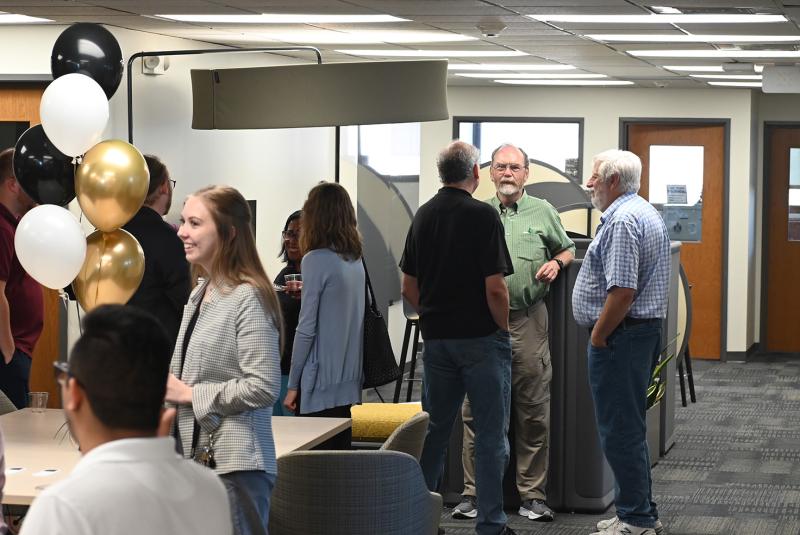 |
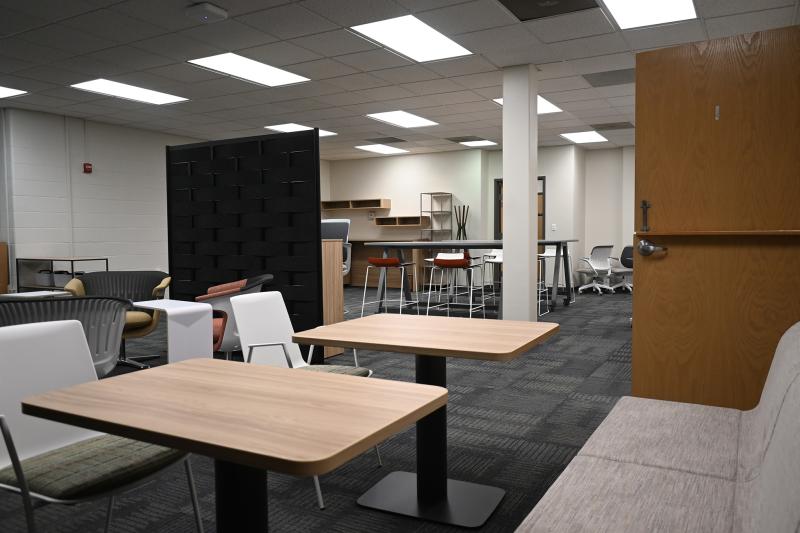 |
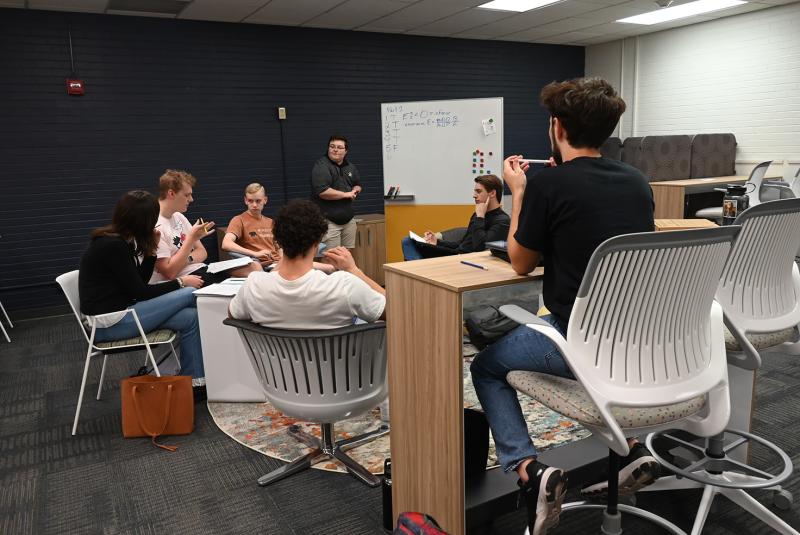 |
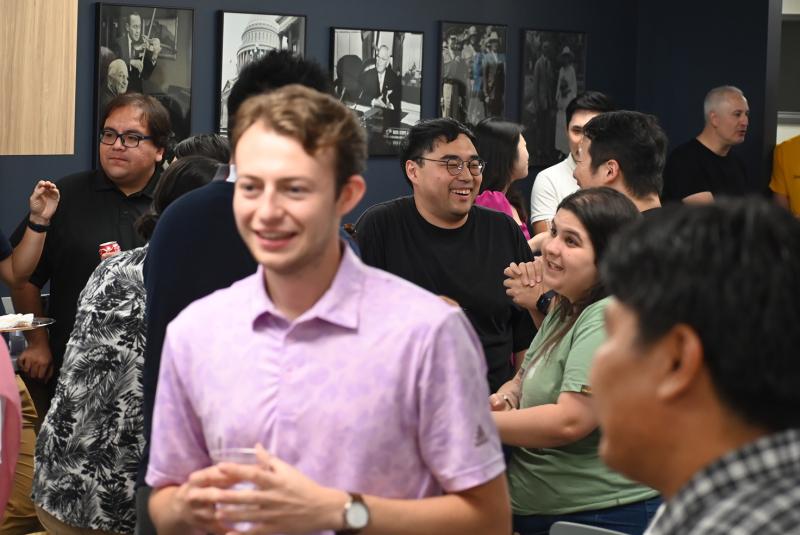 |
See our first floor student lounge transform.
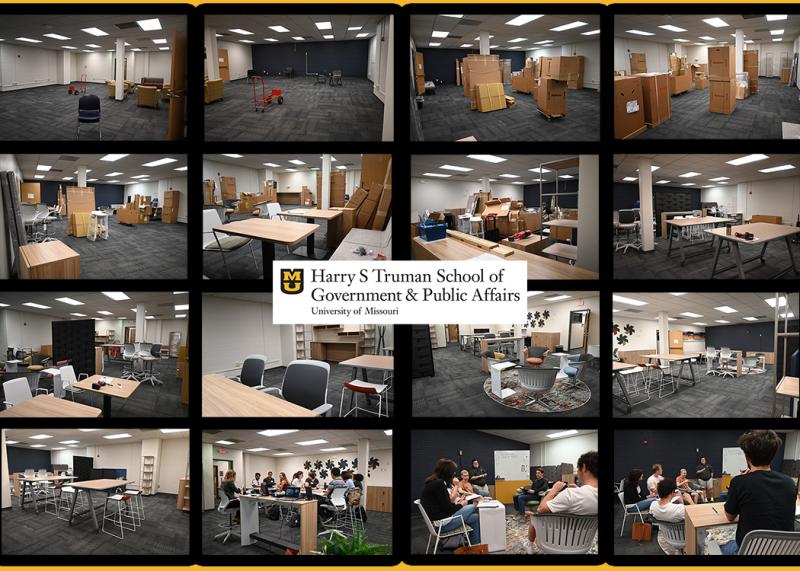
|